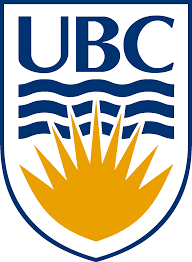Primary Advisor: René Doyon
Secondary Advisor: Björn Benneke
Olivia completed her B.Sc. at Université de Montréal in 2019 in the physics program, with a concentration in astronomy and astrophysics. She started her undergraduate studies with an internship at the Institute for Research on Exoplanets (iREx) under the supervision of Professor Jason Rowe. She focused on determining the orbital orientation of binary stars from the Kepler Eclipsing Binaries catalog. The following summer, she completed a second internship at iREx under the supervision of iREx researcher Lison Malo and Professor René Doyon. The project revolved around magnetic field measurements of M dwarfs. That same summer, Olivia also did a one-month internship at Canada France Hawaii Telescope (CFHT) under the supervision of resident astronomer Pascal Fouqué, where she studied binarity and multiplicity in stellar systems involving M dwarfs. The goal of both of these internships was to refine the target selection in preparation for SPIRou at CFHT. She spent a third summer as an intern at the Royal Military College of Canada where she worked under the supervision of Professor Gregg Wade. She focused on determining the orbital, rotational and magnetic properties of the evolved binary system Capella, while also working on the Magnetism in Massive Stars (MiMeS) survey. She continued participating in the MiMeS project as a junior research assistant throughout her last year of undergraduate studies.
Olivia started the PhD program in physics at Université de Montréal in May 2019. The main subject of her thesis is the Trappist-1 system. For her B.Sc. research project, she simulated the radial velocity (RV) signal of the Trappist-1 planets while imposing realistic observational constraints on the sampling scheme. As a continuation of this project, she now works on modelling the activity of the host star and its signal in RV ("jitter"). These steps are necessary to determine whether the current mass measurements of the system's planets can be improved with RV data. Masses are fundamental parameters to correctly infer the density and thus the composition of exoplanets, which allows the assessment of their habitability. Olivia's work on this system is thus relevant to the TEPS program and not only for Trappist-1 but also for habitable zone Earth-sized exoplanets in general.








